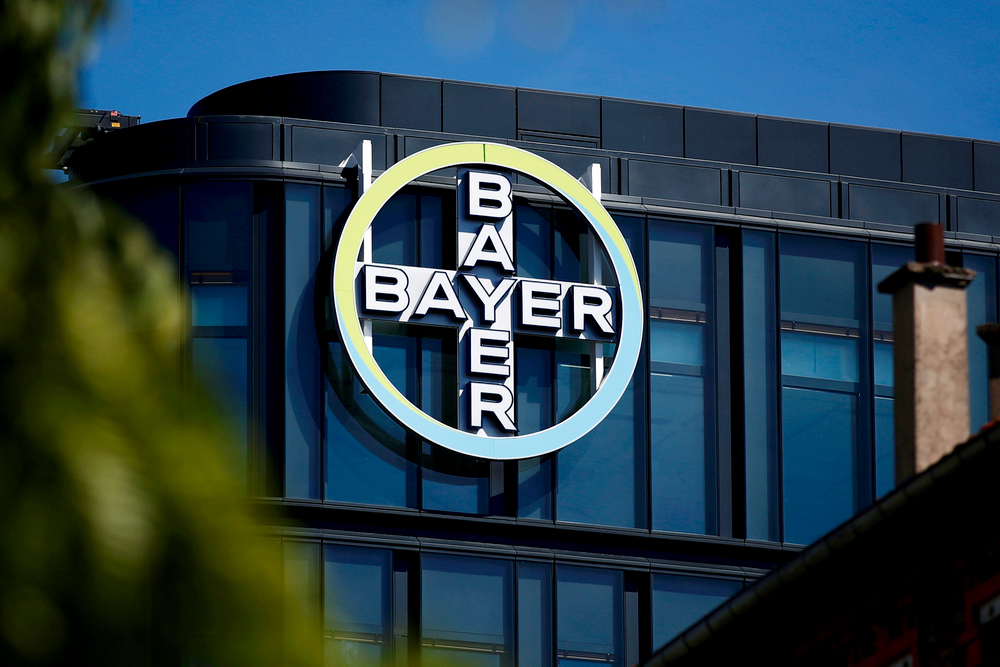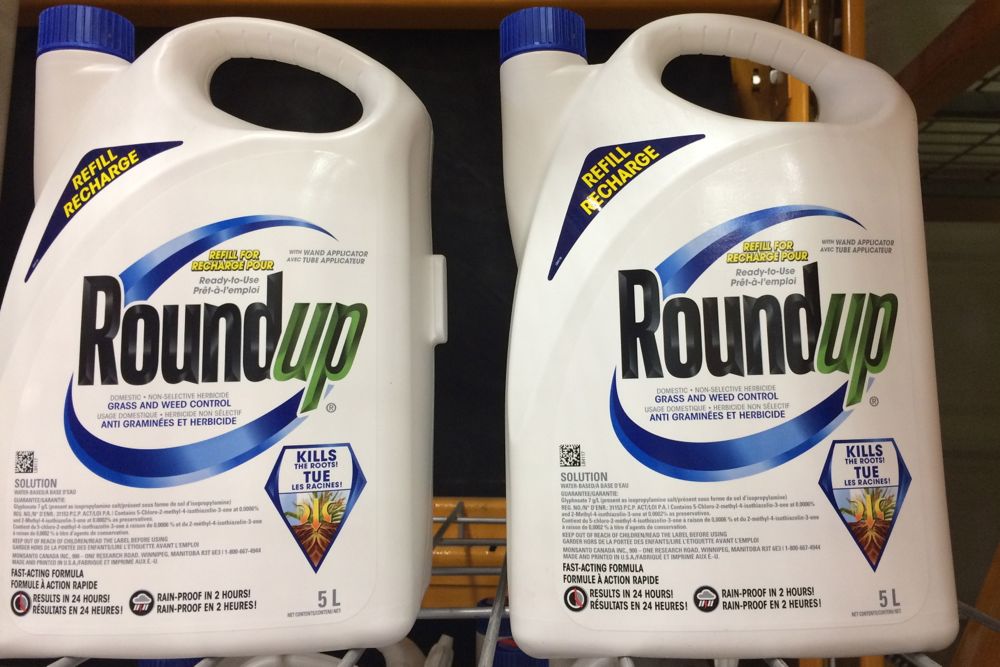Glyphosate class action moves forward in Canada

Glacier FarmMedia—Multiple law firms across the country – in Saskatchewan, Ontario, British Columbia and elsewhere – are now recruiting Canadians to join a class action lawsuit related to Roundup and cases of non-Hodgkin’s lymphoma.
The publicity to join the class action began this month.
As an example, McKenzie Lake Lawyers, a firm in London, Ont., says on its website that it’s pursuing a class action lawsuit against Monsanto and Bayer on behalf of Canadians who have had “significant exposure” to glyphosate-based herbicides and have a diagnosis of non-Hodgkin’s lymphoma.
Read Also


Bank of Canada holds rates, says tariffs could cause deep recession
The Bank of Canada on Wednesday held its key policy rate at 2.75 per cent, its first pause after seven consecutive cuts, and said that the uncertainty around U.S. tariffs made it impossible to issue regular economic forecasts.
Legal wrangling
In December 2023, the Ontario Superior Court of Justice certified a national class action lawsuit against Monsanto and Bayer, alleging that exposure to glyphosate products caused non-Hodgkin’s lymphoma (NHL).
The promotion of the class action was delayed for 16 months because Bayer and the Canadian legal firms were arguing about the definitions and criteria of the class action. In short, they were discussing who is eligible to join the class action and who is not.
Those definitions were sorted out this spring. The law firms can now proceed with public advertising to promote the class action.
Connection with cancer alleged
The lead of the Canadian class action is Jeffrey DeBlock, who is now 47 and lives in Toronto. As a teenager in the early 1990s, he worked on farms for summer jobs, spraying weeds with a backpack sprayer, according to a 2019 statement of claim submitted to the Ontario Superior Court of Justice.
At the age of 17, he was diagnosed with non-Hodgkin’s lymphoma. The lawsuit contends that DeBlock developed the disease because of his significant exposure to Roundup, the brand name for Bayer herbicides with glyphosate as the active ingredient.
In an email to the Western Producer, a Bayer spokesperson said the company has “great sympathy for Mr. DeBlock’s medical issues.”
However, they said Bayer is confident glyphosate did not cause his illness.
“Bayer firmly stands behind the safety of glyphosate-based products and will vigorously defend them,” the spokesperson said.
“Our glyphosate products have been used safely and successfully in Canada and internationally for nearly 50 years. Leading health regulators around the world have repeatedly concluded that glyphosate is not a carcinogen and that glyphosate products are safe when used according to label directions.”
Health Canada safety reviews
One of those regulators is Health Canada.
From 2015-19, Health Canada conducted multiple reviews on the safety of the herbicide. A Frequently Asked Questions page on the Health Canada website says the following:
“No pesticide regulatory authority in the world, including Health Canada, considers glyphosate to be a carcinogenic risk of concern to humans.”
Despite those findings, the DeBlock class action has been working its way through Canadian courts since 2019. The certification, in December 2023, means the lawsuit meets the criteria of a class action. It isn’t a decision on the merits of DeBlock’s case.
“In order for an action to proceed as a class action, the court must determine whether it is appropriate for the case to be treated as a class action,” says Koskie Minsky, the Toronto law firm leading the Roundup class action.
The DeBlock case and almost all Roundup lawsuits are founded on a United Nations International Agency for Research on Cancer (IARC) decision. In March of 2025, it classified glyphosate as “probably carcinogenic to humans.”
That finding has been rejected by Health Canada, the European Food Safety Authority, the UN Food and Agriculture Organization and the U.S. Environmental Protection Agency, which all say that glyphosate is unlikely to cause cancer.
Bayer spending big money on litigation
Bayer is spending a significant amount of money in legal costs defending the safety of Roundup.
Chief executive officer Bill Anderson told the Wall Street Journal that in some years the German firm spent more on litigation costs related to Roundup than it did on research and development of new agricultural products.
“We barely break even on glyphosate production and distribution,” he said in an April 14 WSJ article.
“If you then factor in litigation, you’re talking US$2 billion to $3 billion in losses a year.”
Bayer has dealt with 114,000 claims regarding the safety of glyphosate, and most of those cases have been resolved or deemed to be ineligible.
However, there are still 67,000 active lawsuits in the United States.
Anderson is determined to get the corporation’s legal costs under control. If that can’t be accomplished, the company might pull the herbicide from the U.S. market.
“We’re pretty much reaching the end of the road…. We’re talking months, not years.”
No decisions made
A spokesperson for Bayer clarified that there is no “timeline” for the availability of glyphosate.
“As of today, no decision has been made about the future of glyphosate for Bayer in the U.S. or Canada, and we do not have a specific timeline,” they said.
“Bayer is focused on critical items this year to contain glyphosate litigation in the U.S. We hope we can find resolution so that we are not forced to stop selling this product.”
As for Canada, the class action is likely years from being in front of a judge who will decide the case.
In an email, Koskie Minsky explained the next legal steps.
“Notice about the certification of the class action will be provided to class members, and class members will have to decide whether they want to remain in the action or opt out. After this stage, the litigation will move on to the discovery phase, which involves exchange of documents … in preparation for trial of the common issues,” it said.
“We are not able to provide estimates of the class size.”
Source: Farmtario.com



